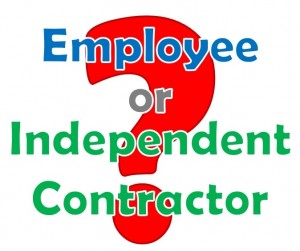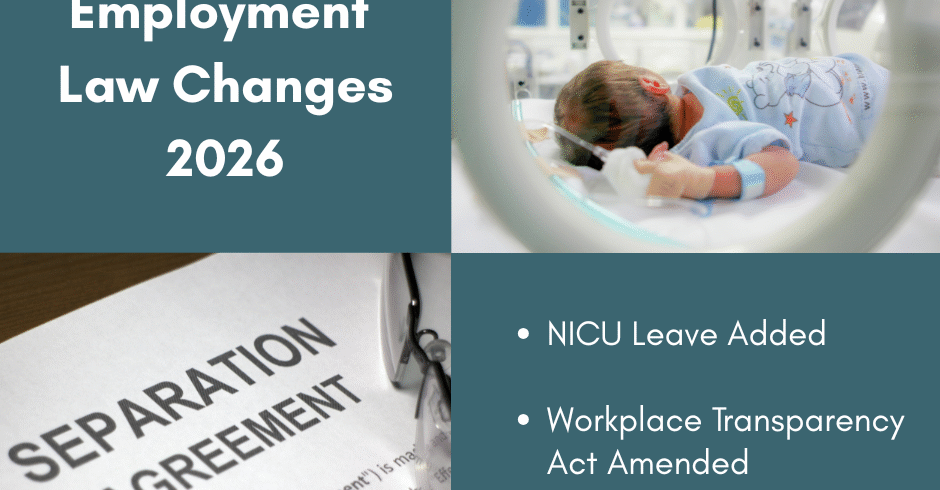On July 15, 2015, the U.S. Department of Labor (“DOL”) announced that it had entered into a Memorandum of Understanding (“MOU”) with the Kentucky Labor Cabinet. Under the MOU, the agencies may share information and coordinate enforcement of federal and state laws and regulations regarding classification of workers. In addition to Kentucky, the DOL has entered into similar MOUs with at least 22 other states, including Illinois.
Coincidentally, the DOL issued Administrator’s Interpretation Number 2015-1 on the same day. The Interpretation provides guidance on the application of the federal Fair Labor Standards Act’s (“FLSA”) “suffer or permit” standard to the identification of employees who are misclassified as independent contractors. The goal of the Interpretation is to provide workers and employers with a clear understanding of how the FLSA’s definition of “employee” guides the determination of whether workers are employees or independent contractors under the law. This interpretation also applies to whether workers are employees under the Family and Medical Leave Act.
The FLSA broadly defines “employ” as including “to suffer or permit to work.” The Interpretation discusses a number of factors which make up the “economic realities” test which, if met, indicates that a worker is really an employee, as opposed to an independent contractor. The factors are as follows:
- Is the Work an Integral Part of the Employer’s Business? If the work performed by the independent contractor is the same work as that performed by the employer, it is more likely the worker is economically dependent on the employer, and therefore an employee.
- Does the Worker’s Managerial Skill Affect Her Opportunity for Profit or Loss? This factor does not focus just on whether there is opportunity for profit or loss, but rather on whether the worker has the ability to make decisions and use her managerial skill and initiative to affect the opportunity for profit or loss.
- How Does the Worker’s Investment Compare to the Employer’s Investment? A true independent contractor typically makes investments that support a business as a business beyond any particular job. If the worker’s investment is relatively minor compared with that of the employer, then the worker is likely an employee. For example, if a cake decorator invests $400 in his tools, but the employer invests in paying rent, advertising, operating expenses, and other labor, in addition to supplies, then the cake decorator is likely an employee.
- Does the Work Require Special Skill and Initiative? Having a specialized skill does not necessarily mean the worker is an independent contractor. Instead, if a worker possesses a specialized skill, and performs that specialized skill for a variety of employers, then it is more likely the worker is an independent contractor.
- Is the Relationship Between the Parties Permanent or Indefinite? A worker who is truly in business for herself will avoid a permanent or indefinite relationship with an employer, and the dependence that comes with such permanence or indefiniteness.
- To What Extent Does the Employer Control the Work? An independent contractor must control meaningful aspects of the work performed such that it is possible to view her as a person conducting her own business.
To summarize, in the view of the government, most workers are employees under the FLSA’s broad definition. The ultimate inquiry is whether the worker is economically dependent on the employer or truly in business for herself. If the worker is economically dependent, then she is likely an employee. Of course, the opposite is true. Employers should keep in mind that none of the factors above outweighs the others, and it is a very fact sensitive determination as to whether a worker is an employee or an independent contractor. Legal counsel should be consulted if you are in doubt.
For more information, please contact Mark McAnulty at mmcanulty@KDDK.com or (812) 423-3183; or contact any member of the KDDK Labor and Employment Law Practice Team.
About the Author

Mark A. McAnulty, a partner at Kahn, Dees, Donovan & Kahn, LLP, in Evansville, Indiana, practices labor and employment law, and is a member of the KDDK litigation and trial services practice team. Licensed to practice in Indiana, Kentucky, Illinois, and Missouri, Mark has represented clients in administrative and judicial proceedings throughout the tri-state area. Mark counsels clients regarding hiring and disciplinary issues, as well as compliance with local, state and federal employment laws. Mark also works with clients in reviewing and drafting employment contracts, non-compete agreements, and employee handbooks; and has advised and represented employers in labor management and union avoidance matters.







